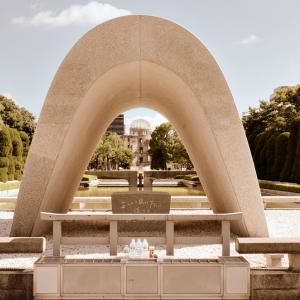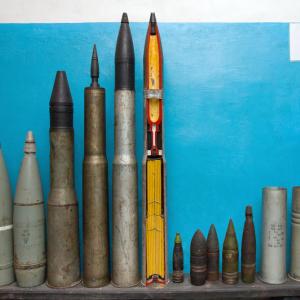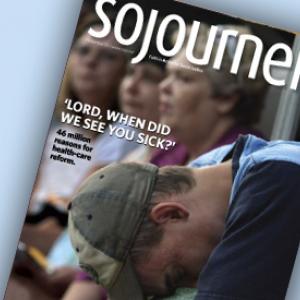
Tyler Wigg-Stevenson (@TylerWS) is an Anglican priest and Scholar-in-Residence at Little Trinity Church, Toronto, Ontario, and a Contributing Editor to Sojourners.
Posts By This Author
The False Choice Between Saving Lives and Saving the Economy
That’s the hard decision facing us, we’re told: Sacrifice lives or sacrifice the economy. This is a false choice. Sacrifice is necessary, but it doesn’t have to be lives or our common well-being.
This Is My Body
ON DEC. 10, 2015, shortly after then-candidate Donald Trump suggested a “total and complete shutdown” of Muslim immigration, Wheaton College professor Larycia Hawkins wrapped a hijab around her head, snapped a selfie, and posted the photo on Facebook. “I stand in religious solidarity with Muslims because they, like me, a Christian, are people of the book,” wrote Hawkins in the post. “And as Pope Francis stated last week, we worship the same God.”
It was a costly act for Hawkins: Three months later, following a controversy about whether she had violated the evangelical school’s statement of faith, she was no longer a tenured professor at Wheaton. But Hawkins doesn’t regret what she did. As she sees it, true solidarity—she calls it “embodied solidarity”—always comes with a cost.
When it comes to bodies and the church, Christians often start with St. Augustine. Though the esteemed fourth century bishop of Hippo spent a full decade debunking the dualistic heresy that material bodies were evil, he remained famously skittish about fleshy influence on the soul. By Augustine’s reading of scripture, bodies weren’t inherently wicked, but they sure were weak—especially female bodies—and you had to watch ’em or God-only-knows what kind of sinful depravity might creep in. He often quoted the Book of Wisdom: “the corruptible body weighs down the soul and the earthly tabernacle presses down the mind that muses upon many things.” And you don’t have to be a church-history expert to trace the devastating legitimacy Augustine’s ideas gave to misogyny and other forms of body-based oppression in Christianity.
Yet as Christians in every generation have countered, we can’t write bodies off so easily. After all, smack dab in the middle of our confession of faith is a savior who suffered bodily, was crucified, and rose again. What’s more, this same savior was known for saying that love is laying down your life, and how we treat others is ultimately how we treat God. “‘Suffering with’ requires our entire bodies,” Hawkins later explained. “Suffering from a distance is not solidarity. Theoretical solidarity is not solidarity at all.”
Sojourners asked six Christian writers and theologians: What does your body tell you about God? Not bodies in the abstract, but your body: pimples, dreadlocks, muscles, belly buttons, wrinkles, thighs, and all. And though it might sound like an exercise in navel- gazing sure to make Augustine roll over in his grave, the responses we received say a lot about the carne part of incarnation: the radical solidarity of a God who took on flesh. - The Editors
President Obama's Apology to Hiroshima

The Memorial Cenotaph at Hiroshima Peace Memorial Park, Sean Pavone / Shutterstock.com
I’m sorry for bookending my presidency with visits to historically significant cities — that’s Prague and Hiroshima, if you haven’t been paying attention — to exploit them as backdrops for lofty but ultimately inconsequential noises about the elimination of nuclear weapons.
Ruin in Me That Which Is Opposed to Ruin

Image via LiAndStudio/Shutterstock
There is no political outcome that will make these children not drowned. There is no politics that will pull their shirts down to cover their exposed tummies, the way a parent’s loving hand would do. There is no politics that will make their drenched clothing anything other than the last outfit their parents ever clothed them in, unaware when they did so that it would be the clothing in which their children would die. There is no politics that will give these children another life that does not end in terror and despair and cold water. (God, God, how does one write words like this?) There is no politics that will give their parents anything but the end they had: of going into the dark knowing that their dear ones were lost forever.
All this is permanent. It is done and cannot and will not and will never be undone. And while I am all for good politics, which is to say I am all for a good future, and so I am all for doing better by the refugees that yet live, I also refuse to let the past go as if it were merely the gravel under the sub-foundation of whatever shiny tomorrow we happen to build next.
There is no politics that can redeem what time has irretrievably taken. To stand as witness to the past is to stand either in utter nihilism and despair, or in the desperate, desperate hope that in the end a Redeemer will walk upon the earth, who will bring forth those whose flesh was destroyed, to see and be loved forever by God.
Creating A New Norm

Eillen / Shutterstock
FOR NUCLEAR-WEAPONS watchers, the promise of the 2008 presidential campaign feels like a lifetime ago. Both Barack Obama and John McCain had endorsed the goal of a world without nuclear weapons. They were bolstered in doing so by the nonpartisan gravitas of four Cold War éminences grises who had rocked the foreign-policy establishment by arguing in The Wall Street Journal that nuclear deterrence couldn’t be trusted to keep the peace in the post-Cold War era. Instead, complete elimination of all nuclear weapons was the only way to ensure they would never again be used.
The promise of the campaign seemed to be confirmed by President Obama’s decision to declare, in a major speech in Prague within his first 100 days in office, that he “sought the peace and security of a world without nuclear weapons.” His subsequent Nobel Peace Prize was awarded, in no small part, for the promise of the Prague address.
It’s basically been downhill from that speech.
Yes, the 2010 New START agreement ensured continued bilateral reductions by the U.S. and Russia, which together possess more than 90 percent of global nuclear stockpiles (down to 16,000 from a peak of 65,000 in 1986). But New START didn’t change the fact that both countries still have enough weapons on high alert to devastate all life on the planet.
A Heart for Peace
A VARIETY OF EVANGELICAL peacemaking efforts have sprung up in recent years, from the Two Futures Project, which seeks a world without nuclear weapons, to the World Evangelical Alliance’s Peace and Reconciliation Initiative, which seeks to redress the fact that “in our zeal for evangelism, we have often overlooked the biblical mandate to pursue peace.”
This fall, evangelicals from a range of viewpoints gathered at Georgetown University in Washington, D.C., exploring what a distinctive evangelical contribution to peacemaking might look like. The essays below, unless otherwise noted, are taken from the first Evangelicals for Peace conference, a “summit on Christian moral responsibility in the 21st century.” Organizers hope to publish a book with the entire collection of talks. —The Editors
-----
‘All the Easy Jobs Have Been Done’
Standing on a rich tradition of peace and transformation
by Geoff Tunnicliffe
WHY IS PEACEMAKING an important topic for evangelicals? As a global community of 600 million Christians, our churches are confronted daily with the impact of illegal weapons. Our hospitals treat the victims of violence. Our church leaders counsel the traumatized. All forms of conflict negatively impact our development programs. Our aid agencies seek to care for and rehabilitate child soldiers. Our inner-city communities are confronted with the outcomes of gang warfare.
For all of us who say we are followers of Jesus, as we observe or experience the brokenness of our world, it should break our hearts. If we feel the pain so deeply, I can’t imagine what our loving God feels. The One who is called the Prince of Peace. The One who laid down his life, so that we could be reconciled to God and each other.
The World Evangelical Alliance’s engagement in peacemaking stands on the rich traditions of evangelicals who have devoted themselves to being instruments of social change and transformation. We want to say loudly that we evangelicals want to be on the forefront of peacebuilding. All the easy jobs have been done. It’s just the tough ones that are left. It requires clear vision to face these challenges.
We as evangelicals are committed to working together with those in and outside our community for the good of all. May God empower us through the work of his Spirit to be his ambassadors of peace and reconciliation.
Scary Hope: The Nuclear Cinema of Summer 2010
A New START Toward Nuclear Disarmament
Video Interview with George Shultz
George Shultz talks about why he cares about ending nuclear proliferation — and how he believes we can enter into a world free of nuclear weapons.
Obama, the UN, and the Bomb: Six Takeaway Points
Two Myths About North Korea, Iran, and Disarmament
The Dangerous Trade-off
The U.S.-India nuclear deal fans the flames of the global arms race.



